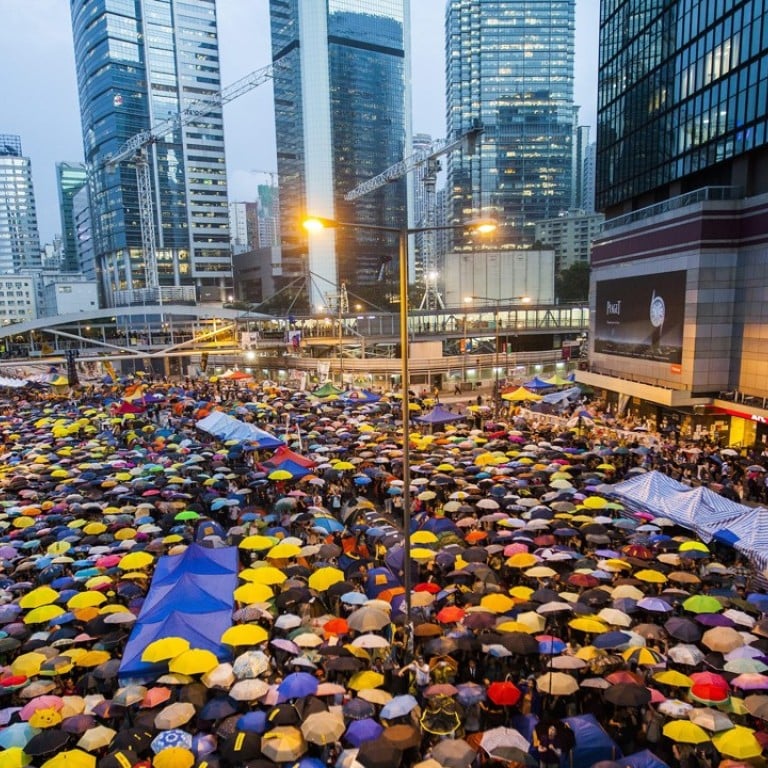
Like father, like son: Xi Jinping’s Occupy challenge in Hong Kong similar to father’s experience 30 years before
In 1983, Xi Zhongxun reassured residents fearful of Beijing’s plan to reclaim sovereignty of Hong Kong that nothing would ‘upset the prosperity and stability’ of the city
Three decades before Chinese President Xi Jinping had to reckon with the outpouring of anger during the 2014 Occupy movement, his father had to grapple with another Hong Kong crisis.
It was mid-May 1983, when Xi Zhongxun, vice-chairman of the National People’s Congress Standing Committee (NPCSC), was locked in a three-hour meeting with 19 Hong Kong politicians at the Great Hall of the People in Beijing. Before them was the question of how to pacify a Hong Kong public fearful of Beijing’s plan to reclaim sovereignty of the British colony in 1997.
Xi the elder struck a reassuring tone, pledging that Beijing would handle the issue “with great care” and nothing would be said or done “to upset the prosperity and stability of Hong Kong”.
Back then, anxieties among Hongkongers ran deep. The headline of a South China Morning Post report of that meeting captured the mood: Confidence Nosedive Fear Over 1997. Today, the unease lingers. The Basic Law, the framework for governing Hong Kong, is in place and has assured the city of prosperity and stability but it remains a source of uncertainty and, for some, grave trepidation.
Based on the Sino-British Joint Declaration, sealed by paramount leader Deng Xiaoping and then British Prime Minister Margaret Thatcher in 1984, the drafting committee spent four years and eight months before coming up with the document in 1990. Under it, Hong Kong exercises the “one country, two systems” principle and keeps its capitalism model distinct from the socialist regime. Its freedoms and human rights standards, unprotected in the mainland, are to be preserved.
After Xi Jinping came to power, he repeatedly called on Hong Kong to ensure “one country, two systems” is steadfastly applied “without bending or distortion”. In May, No 3 state leader Zhang Dejiang struck a hardline tone by emphasising the sovereign powers the country has – and will deploy – over Hong Kong; little mentioned were the rights that Beijing has guaranteed the city.
For many Hongkongers, two of the articles in the Basic Law – concerning universal suffrage and national security – have spelt endless disappointment, if not social unrest. Adding to the uncertainty is Beijing’s unfettered power to “interpret” the Basic Law, which critics say is no different from rewriting the law based on political expediency rather than legally sound planning.
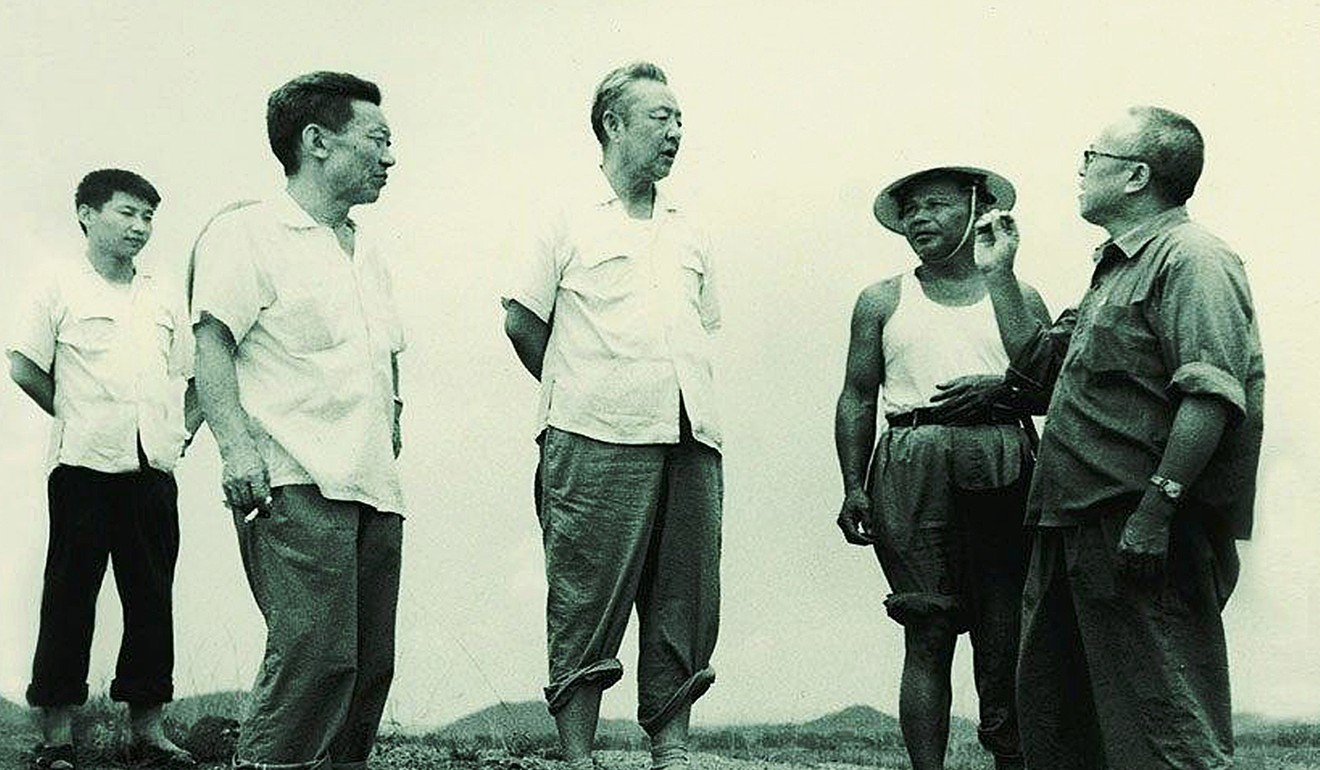
No other clause in the Basic Law has raised more questions and arguments than Article 45, under which the “ultimate aim is the selection of the Chief Executive by universal suffrage upon nomination by a broadly representative nominating committee in accordance with democratic procedures”.
If the 2014 Occupy movement prompted by Beijing’s restrictive application of the clause was one of the most recent manifestations of the dispute, the origin of democratic aspirations may be traced back to the late 1980s. That was a time when none of the seats in the Legislative Council was directly elected. While pan-democrats hoped to see direct elections by 1988, the colonial government reached a secret deal with Beijing that such a model be delayed. That changed with the Legco polls in 1991 in an attempt to allay the fears of Hongkongers after the Tiananmen Square crackdown two years before.
Under the Basic Law, Hong Kong could in theory have reached the “ultimate goal” of universal suffrage 10 years after the handover “if there is a need to amend the method for selecting the Chief Executives for the terms subsequent to the year 2007”. It was agreed that after universal suffrage was applied to the election of the chief executive, all Legco seats could also be elected based on “one person, one vote”.
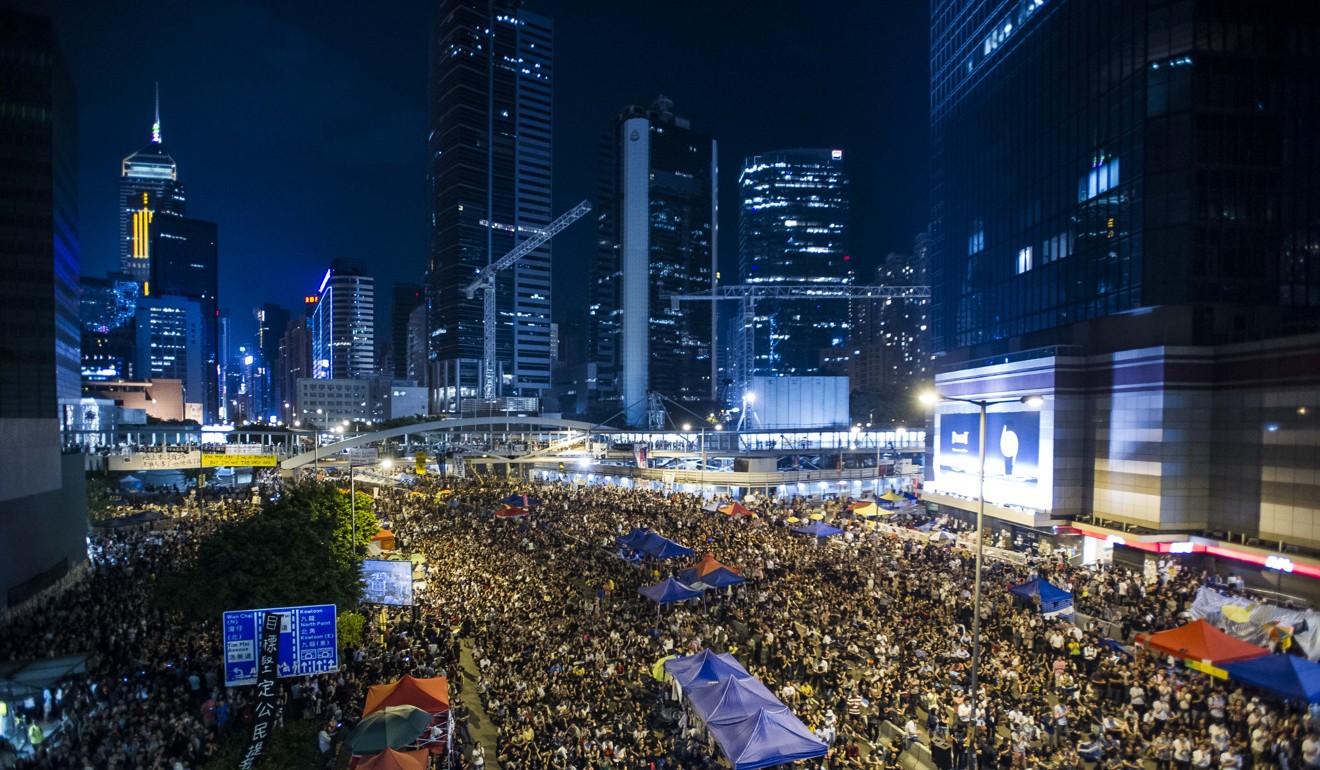
Democracy in waiting
That hope was dashed for good when the NPCSC unilaterally postponed the timetable in 2004. Steps were later taken towards universal suffrage, although the pace was not satisfactory for all. In 2010, the Democratic Party reached a deal with Beijing’s representatives in Hong Kong over an additional five seats in the legislature from 2012.
The plan for “super seats”, to be elected by more than three million voters not qualified to cast their ballots in the functional constituencies, was passed amid opposition, who described the proposal as a facade of real democracy.
The criticism became even louder in 2014, when the NPCSC said it would allow Hongkongers to elect their chief executive in 2017 – on condition that a nominating committee could prescreen candidates. That unleashed a wave of student civil disobedience in the form of Occupy or the “umbrella movement”, begging the question of whether Beijing would be prepared to allow democracy in an increasingly polarised society.
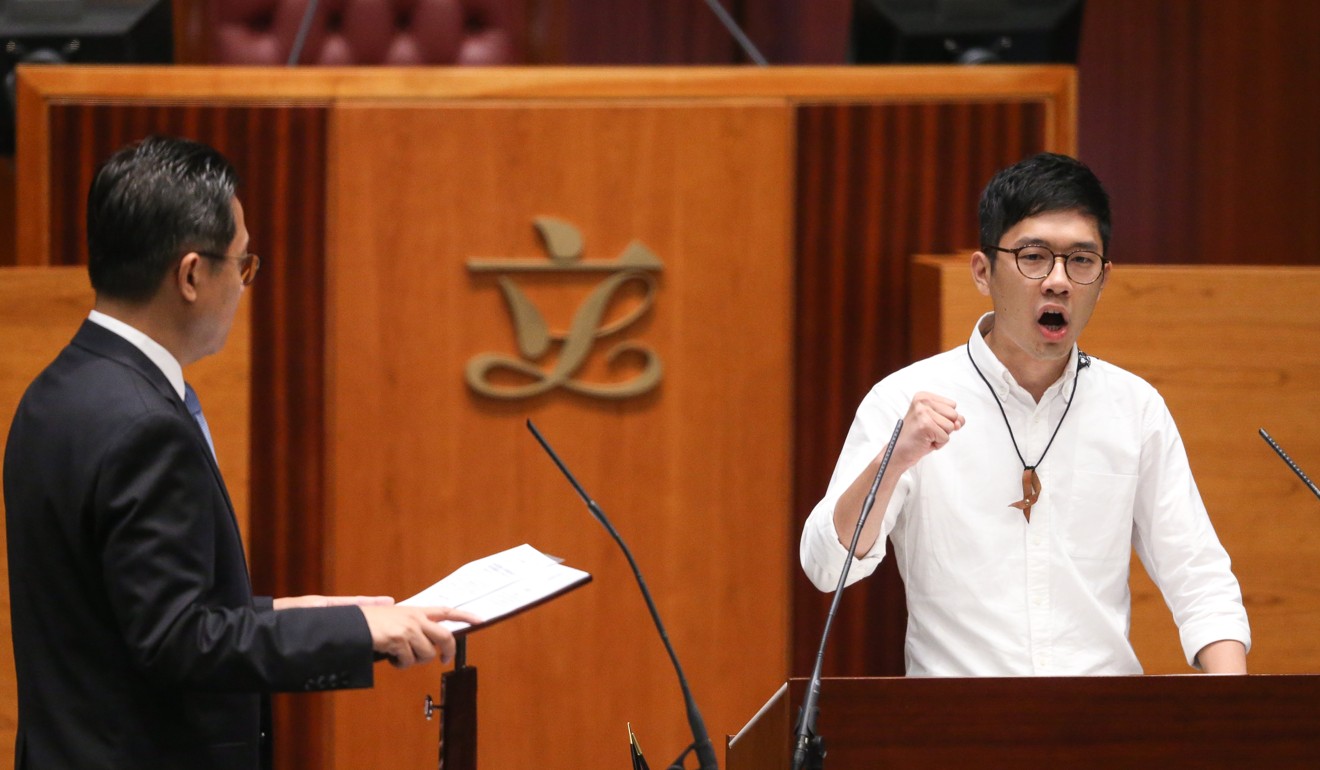
Nathan Law Kwun-chung, who was barely four when Hong Kong changed hands, was a key student leader during Occupy. Now, he is the city’s youngest ever member of Legco. “Hong Kong people care about the pace of democracy so much not only because universal suffrage is considered a basic human right here, but also as a matter of trust because this is a promise made by the central government,” he says.
But for Beijing loyalists who helped draft the Basic Law, the controversies were long anticipated. Tam Yiu-chung recalled they paid attention to devising a system where to be popularly elected a Hong Kong leader would “love the country and love Hong Kong”. Today, the chief executive continues to be elected by a 1,200-strong Election Committee made up largely of Beijing loyalists, and nearly half of Legco is chosen by privileged classes.
“Beijing has made a strategic decision that democratic developments in Hong Kong have to happen on its terms, or not at all,” says Kerry Brown, professor of Chinese studies at King’s College London and a former senior British diplomat in Beijing.
Maria Tam Wai-chu, a drafter of the Basic Law and member of the National People’s Congress, believes universal suffrage should not be singled out when assessing the success of the mini-constitution. “If you only focus on the election of the chief executive [you overlook] many important things in the Basic Law,” she says.
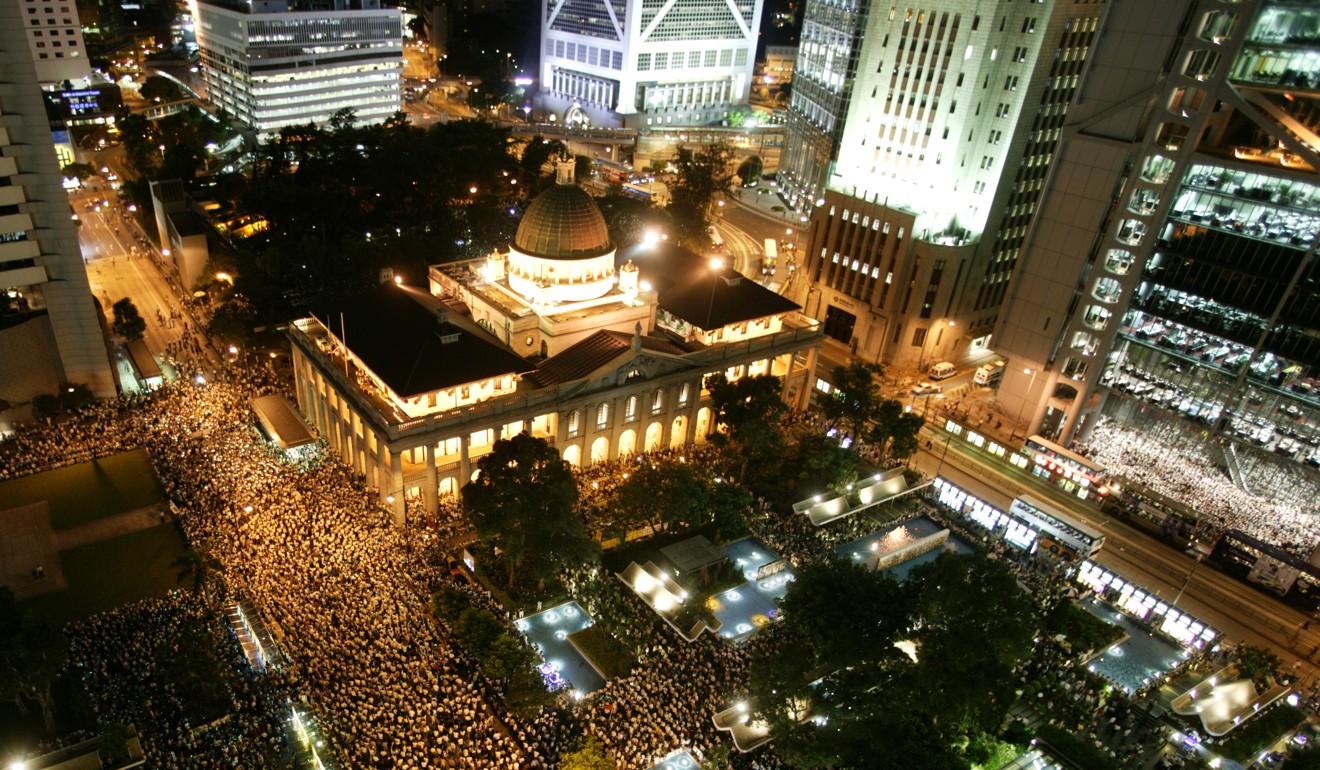
On July 1, 2003, 500,000 people took to the streets to protest against Article 23 and a proposed national security law, the second major concern for Hongkongers. A week later, Tung Chee-hwa, chief executive at the time, spoke of the city’s constitutional duty to enact such legislation. He shelved the law, which would have banned acts of treason, subversion and sedition, after James Tien Pei-chun, former chairman of the Liberal Party, quit the Executive Council.
“I believe it will be even more difficult today to do Article 23,” Tien says. “A decade ago, there was no such thing as the social media. No one used Facebook or Twitter. How can the law be enforced there?”
For scholars from the mainland, however, the law has become necessary in the wake of calls for Hong Kong independence, which emerged from the ashes of the Occupy movement.
Rao Geping, an NPC Basic Law Committee member, said in April that required work on Article 23 could not be further delayed. “The Basic Law has to be implemented comprehensively and correctly. Doing so selectively is not allowed,” he warned.
Tien urges calm. “Those calling for independence are an extreme minority. Unlike Taiwanese or Tibetan separatists, they don’t truly want independence, but see the rhetoric merely as a means to guard Hong Kong against the liaison office’s intervention, which risks tilting ‘one country, two systems’ towards ‘one country, one system’.”
Also of concern is the clause that gives Beijing unfettered power to interpret the Basic Law and spells out in great detail how the Court of Final Appeal should seek a NPCSC interpretation when confronted by matters considered the responsibility of the central government, or affecting the relationship between both parties.
In 1999, however, Tung successfully sought the help of the NPCSC to overturn a Court of Final Appeal ruling that gave right of abode to those born before a parent gained permanent residency. As a result, the number of eligible abode seekers fell from 700,000 to under 200,000.
Five years later, Beijing showed it could initiate an interpretation when the NPCSC decided to interpret – and delay – the Basic Law provision that universal suffrage for the chief executive could come in 2007 at the earliest.
In 2005, Donald Tsang Yam-kuen became the second chief executive to ask for a NPCSC interpretation, this time on the length of his term after succeeding Tung, who quit two years earlier than expected, succumbing to widespread pressure and citing poor health.
It was only in 2011 that the Court of Final Appeal first asked the NPCSC to interpret the law in a case concerning diplomatic immunity. Some mainland scholars said Beijing was unhappy at the time it had taken to ask for its help.
Beijing was even unhappier last year with the election of two pro-independence lawmakers, Sixtus Baggio Leung Chung-hang and Yau Wai-ching, who during oath-taking made anti-Chinese gestures and pledged allegiance to a Hong Kong nation.
The NPCSC stepped in before the Court of First Instance began to hear the government case to oust the pair. In its interpretation, the NPCSC ruled public officials must take their oaths “sincerely” and “solemnly” or they could face disqualification. “An interpretation in those circumstances would have a negative impact on at least the public perception of judicial independence,” Andrew Li Kwok-nang, Hong Kong’s founding chief justice of the Court of Final Appeal, told the Post.
Beijing sincerity questioned
While the Basic Law stipulates that no mainland department shall interfere in strictly Hong Kong affairs, suspected cross-border activities by Chinese law enforcement agencies have also recently unnerved the city.
The 2015 disappearance of five Causeway Bay booksellers and their reappearance in mainland custody has fuelled the debate.
Currently, Hong Kong and the mainland must notify each other if a resident of one is detained by the other. But the booksellers saga put its worth in serious doubt and no known improvements have since been made.
Simon Young Ngai-man, a legal scholar at the University of Hong Kong, says mutual assistance is essential: “In the absence of such assistance or a surrender agreement, the legality of the action is blurry.”
Founding Democratic Party chairman Martin Lee Chu-ming, who helped draft the Basic Law up to 1989, fears for “one country, two systems”.
He argues the mini-constitution has never been implemented in Hong Kong.
As one of the 19 city politicians who met Xi Zhongxun in 1983, Lee now questions whether the Communist Party has ever been sincere in creating a democratic Hong Kong, right from the beginning.
“Now I’m looking back, I think their tactic was to postpone the arrival of democracy,” Lee says.
“And they thought they would be able to win the hearts of Hong Kong people in 10 years.”


